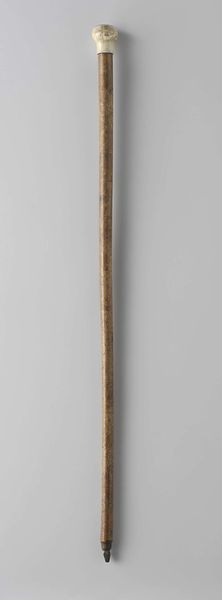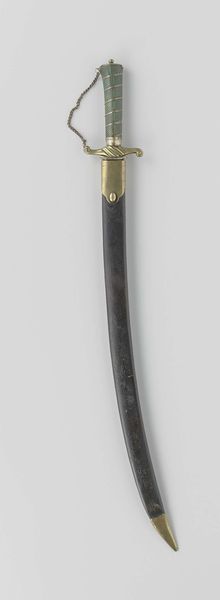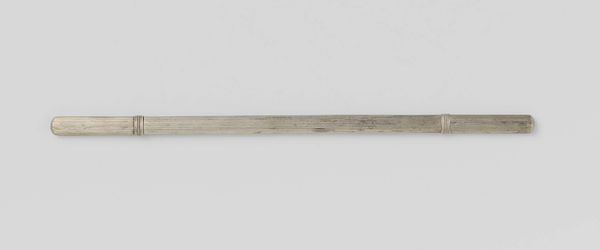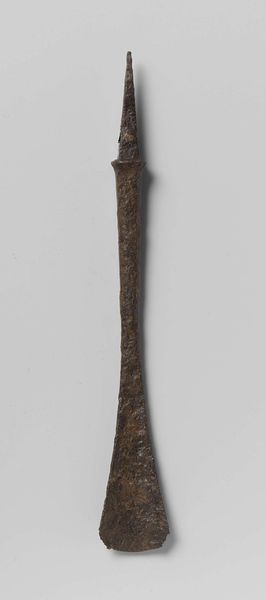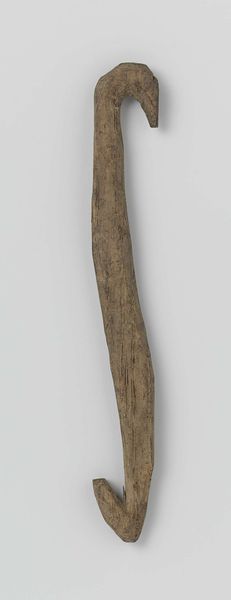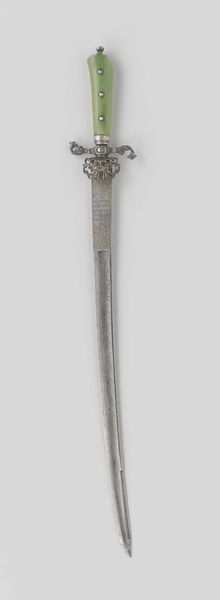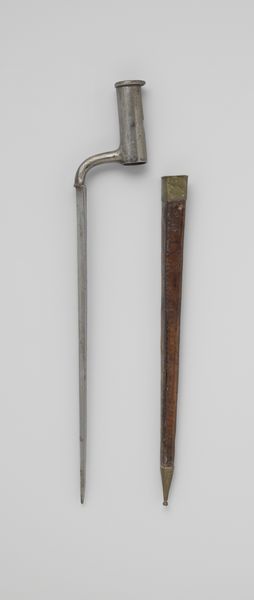
carving, sculpture, wood
#
medieval
#
carving
#
figuration
#
sculpture
#
wood
Dimensions: length 77 cm, width 14 cm
Copyright: Rijks Museum: Open Domain
This crutch, held in the Rijksmuseum, speaks volumes despite its simple construction. In its T-shape we recognize a form with roots stretching back to antiquity. Consider the scepter, a symbol of authority and power, often depicted in the hands of rulers and gods. The crutch here is more than just a walking aid; it symbolizes resilience, human adaptation, and the will to overcome adversity. The shape echoes the staff of Hermes, the messenger god, a symbol of guidance and transition. One can imagine Willem Barentsz leaning on this very crutch, facing the brutal arctic conditions, each step a testament to human endurance. The crutch as a motif appears across cultures—from the shepherd's crook, a symbol of care and guidance, to the pilgrim's staff, representing a spiritual journey. The symbolism is one of both physical and spiritual support in times of hardship. What hidden stories, struggles, and triumphs did this crutch witness?
Comments
rijksmuseum over 2 years ago
⋮
This crutch was made on Nova Zembla for someone with leg trouble. This may have been Willem Barentsz, who was ill during his last weeks on the island and could barely walk, if at all. He had to be transported by sleigh from the shelter to the sloops.
Join the conversation
Join millions of artists and users on Artera today and experience the ultimate creative platform.
